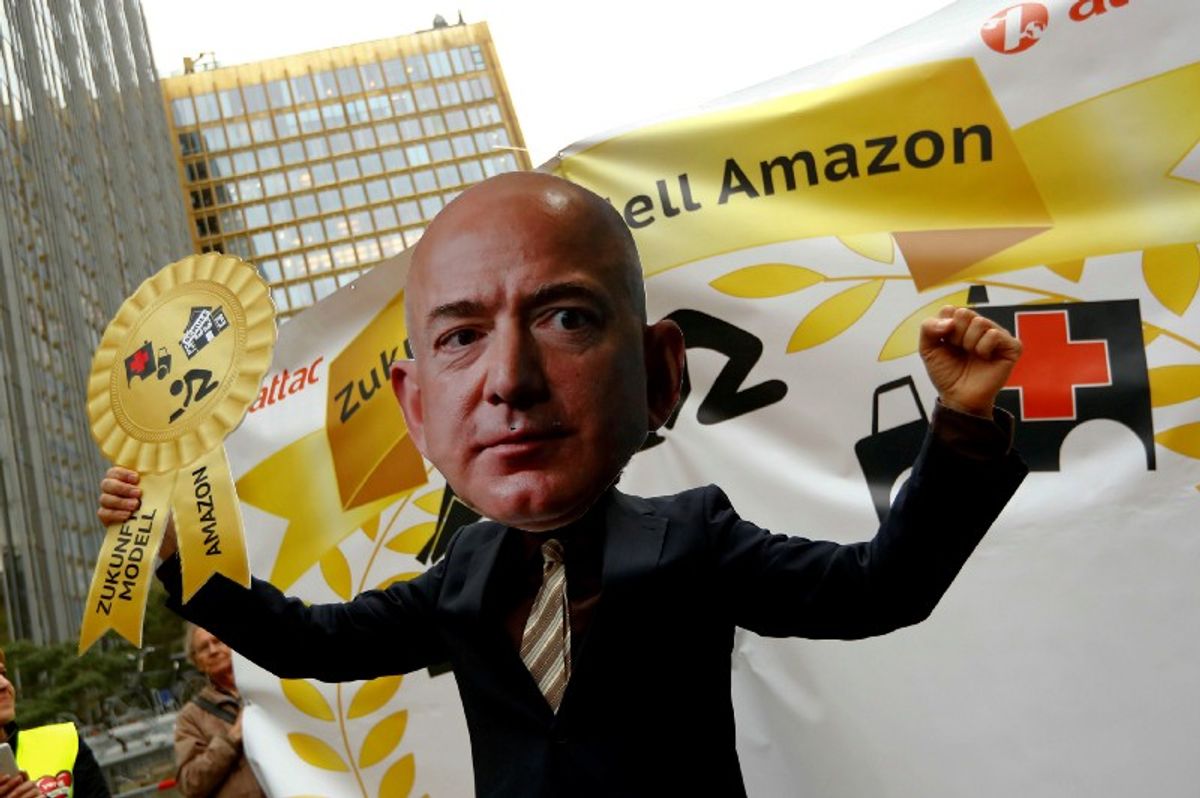Next, we head to Silicon Valley, where US tech giants face a growing backlash over their collaboration with governments on artificial intelligence. Consider the following:
- Last week, a coalition of activists led by the American Civil Liberties Union wrote to Amazon founder Jeff Bezos demanding that the company stop selling its advanced image recognition software to law enforcement agencies. They argued that it handed “dangerous surveillance powers directly to the government,” and that the technology would inevitably be abused.
- Last month, the New York Times reported that a few thousand Google employees had signed a petition demanding that the company stop participating in a Pentagon project to develop advanced image recognition, arguing that it could end up being used in drone strikes. A few dozen staffers have reportedly resigned over the issue.
There are three groups that can apply serious political pressure to tech companies: governments, through regulation; the public (subscribers and shareholders), by withholding their business; and employees, by withholding their labor. Grassroots activism around AI has the potential to energize all three constituencies.
But will it be enough to make a difference? One view holds that, unlike most companies that sell to governments, Amazon, Google and other Silicon Valley giants have consumer-facing businesses vulnerable to public pressure. The other is skeptical that many of us will stop Googling or Amazoning over this, or that large numbers of their employees will walk away from the sizeable salaries, benefits, and stock options they offer. It’ll take regulation to stop tech companies from selling AI to governments, and that’s not something any Congress worried about appearing soft on crime or terrorism is likely to embrace.
We’re curious to know what Signal readers think: Can grassroots pressure act as an effective brake on controversial uses of AI? Send us your thoughts.


















